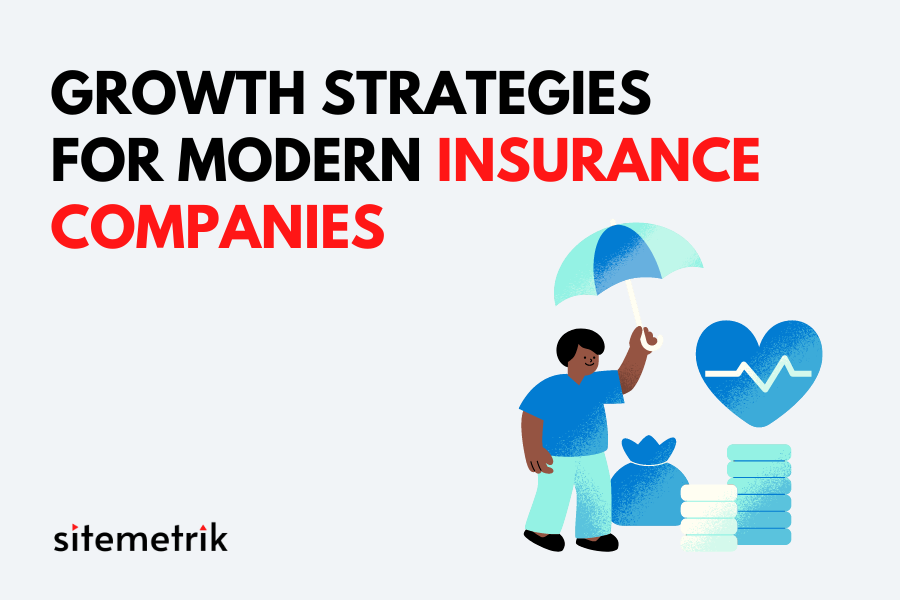Digital Evolution: Growth Strategies for Modern Insurance Companies
What is Digital Evolution?
Digital evolution refers to the transformation and adaptation of insurance companies to the digital age. With the advancement of technology and changing customer behaviors, insurance companies need to evolve their strategies to stay relevant and competitive in the market. This involves utilizing digital tools, implementing data-driven insight, and embracing new technologies such as artificial intelligence. The digital evolution also encompasses the need for insurance companies to provide exceptional service and customer experiences through online channels. In navigating the digital evolution, incorporating innovative technologies and leveraging data-driven insights are essential components of growth strategies for insurance companies aiming to stay ahead in the ever-changing landscape.
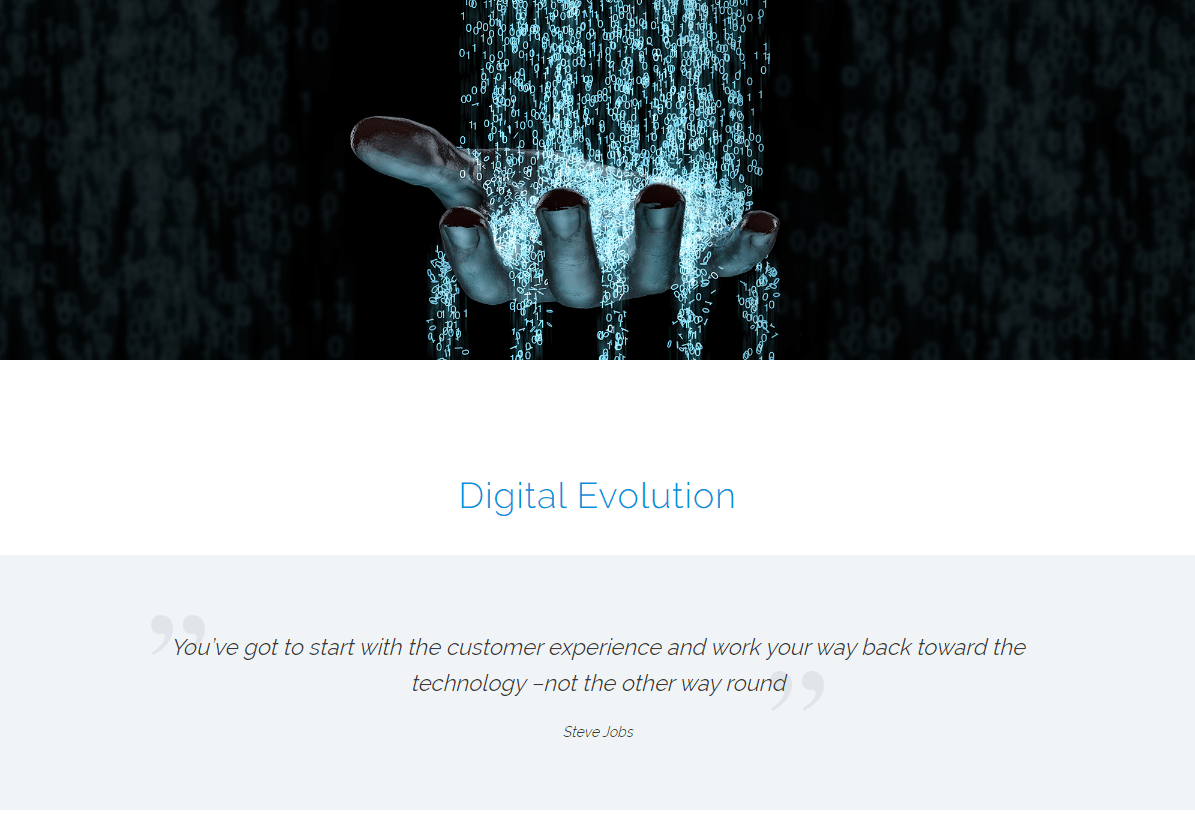
Source: https://www.rimoc.com/client-solutions/digital-evolution/
Why is Digital Evolution Necessary for Insurance Companies?
In the highly competitive insurance industry, digital evolution has become a crucial factor for insurance companies to stay relevant and drive business growth. Traditional insurance strategies that heavily rely on manual processes and paperwork are no longer sufficient in today’s fast-paced and digital world.
One of the limitations of traditional insurance strategies is their inability to keep up with the changing needs and expectations of customers. As businesses grow and evolve, so do their insurance requirements. Digital tools and technologies enable insurance companies to offer more customized and efficient insurance solutions tailored to the specific needs of their clients.
Additionally, digital evolution allows insurance companies to streamline their operations and improve their overall efficiency. Through the use of digital tools such as customer relationship management (CRM) systems, analytics tools, and artificial intelligence, insurance companies can gather valuable data-driven insights that help them enhance their services and make informed business decisions.
Moreover, digital technologies provide insurance companies with the means to deliver exceptional customer experiences. With online platforms, mobile applications, and self-service options, customers can easily access and manage their insurance policies. This convenience and accessibility contribute to greater customer satisfaction and loyalty.
Business Model for Modern Insurance Companies
In the modern insurance industry, businesses have recognized the need for a new and innovative approach to their business models. Traditional insurance strategies often fell short in meeting the evolving needs and demands of customers. To stay competitive and achieve growth, insurance companies have embraced digital tools and technologies that enable them to offer more customized and efficient solutions.
Overview of the Current Insurance Industry
The insurance industry is constantly evolving, driven by factors such as changing customer expectations, emerging technologies, and market conditions. With the advent of digital transformation, insurance companies are facing new challenges in keeping up with rapidly changing business needs.
One of the key trends in the insurance industry is the shift towards providing exceptional customer experiences. Today’s customers are looking for personalized and convenient services tailored to their specific needs. Insurance companies are leveraging digital tools and analytics to gain a deeper understanding of their target audience, customer base, and market conditions. By utilizing data-driven insights, companies can develop effective growth strategies and enhance customer relationships.
Another emerging trend in the insurance industry is the expansion of additional services. Companies are diversifying their offerings to cater to a wide variety of insurance types and customer segments. This includes providing specialized insurance for commercial customers and offering additional services beyond traditional coverage.
To achieve profitable growth, insurance companies need to prioritize digital transformation and adopt innovative strategies. This includes leveraging digital marketing techniques, enhancing customer relationship management, and investing in artificial intelligence and analytics tools. By focusing on providing exceptional service and building customer loyalty, insurance companies can strengthen their market share and position themselves as industry leaders.
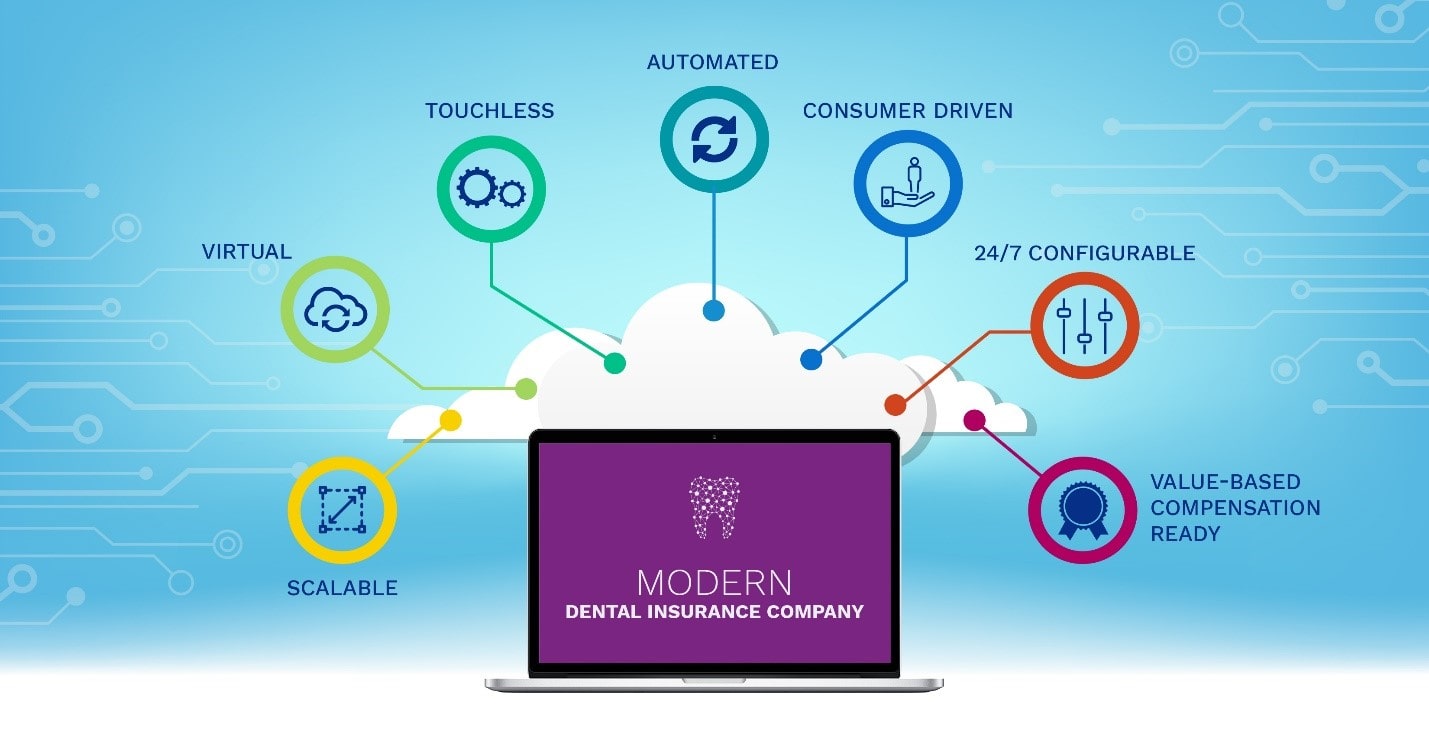
Source: https://www.skygenusa.com/knowledge/blog/technology-delivers-modern-dental-insurance-company
Understanding the Role of a Business Model in Digital Evolution
A well-defined business model plays a crucial role in the digital evolution of modern insurance companies. It serves as a strategic blueprint that outlines how a company creates, delivers, and captures value in the digital age. Understanding the role of a business model is essential for insurance companies looking to adapt to ever-changing market conditions and drive profitable growth.
In the insurance sector, market conditions are constantly evolving due to technological advancements and changing customer preferences. A robust business model helps companies navigate these conditions effectively. It enables insurance companies to identify target markets, define their value proposition, and develop a customer-centric approach to meet the needs of potential clients. By aligning their business model with market conditions, insurance companies can identify new business opportunities and design strategies to fill existing gaps in the market.
A well-defined business model also helps insurance companies leverage digital technologies to their advantage. It allows them to utilize the power of data analytics, artificial intelligence, and other digital tools to gain valuable insights about customer behavior, optimize processes, and enhance customer experiences. By incorporating digital capabilities into their business model, insurance companies can stay competitive, deliver exceptional service, and drive profitable growth.
The key components of a business model that are crucial for successful digital transformation in the insurance sector include:
- Clear value proposition: The business model should clearly define the unique value that the company offers to its customers and how it differentiates itself from competitors.
- Customer segments: The model should identify and target specific customer segments to ensure effective marketing and personalized experiences.
- Revenue streams: The business model should outline the various revenue streams and pricing strategies to ensure sustainable profitability.
- Distribution channels: The model should define how the company will reach its target audience, whether through traditional channels or digital platforms.
- Key resources and partnerships: The business model should identify the key resources and strategic partnerships needed to support digital transformation efforts.
- Cost structure: The model should outline the cost structure to ensure efficient resource allocation and profitability.
Targeting Potential Customers for Modern Insurance Companies
In today’s dynamic insurance industry, successful companies understand the importance of identifying and targeting potential customers effectively. With advancements in technology and changing customer preferences, it is crucial for insurance companies to stay ahead of the game.
Identifying Your Target Audience and Customer Base
For modern insurance companies, understanding and targeting the right audience is crucial for sustained growth and success. To effectively identify the target audience and customer base, insurance companies must delve deep into demographics, lifestyles, core beliefs, and goals of potential clients.
One of the most effective methods is creating customer personas. These detailed portrayals of ideal customers help insurance companies gain a better understanding of their target audience’s needs, preferences, and pain points. By utilizing customer personas, insurance companies can craft personalized marketing strategies.
Analyzing customer data is another essential tool for identifying the target audience. By using data-driven insights, insurance companies can gain valuable information about customer behaviors, preferences, and purchasing habits.
Furthermore, customer-centricity plays a key role in identifying and nurturing the target audience. By prioritizing customer satisfaction, insurance companies can build long-lasting relationships, resulting in increased loyalty and referrals. It involves providing exceptional service, tailoring products to meet customer needs, and actively listening to customer feedback.
Using Digital Tools to Connect with Potential Clients
In the digital age, insurance companies have a wide variety of digital tools at their disposal to connect with potential clients and effectively reach their target audience. These tools play a crucial role in implementing growth strategies and expanding the customer base.
- One effective strategy is attending local events. By participating in community events, insurance companies can engage with potential clients on a personal level. They can showcase their expertise, educate attendees about insurance options, and establish trust and rapport as a knowledgeable resource.
- Creating a business website is another essential tool. A well-designed and informative website serves as a digital storefront, providing potential clients with information about the company, its services, and testimonials from satisfied customers. The website can also serve as a platform for potential clients to request quotes or schedule consultations, making it easier for them to connect with insurance agents.
- Targeted emails are an effective way to stay connected with potential clients. By segmenting their customer database and sending personalized emails tailored to specific interests or needs, insurance companies can provide valuable information, promote relevant insurance products, and nurture leads.
- Building a social media presence is crucial for connecting with potential clients. Platforms like Facebook, Twitter, and LinkedIn offer insurance agents the opportunity to engage with their target audience, share educational content, answer questions, and provide updates on new offerings or promotions.
- Leveraging referrals is a powerful strategy for connecting with potential clients. Insurance companies can encourage their existing client base to refer their services to friends, family, or colleagues. Offering incentives or rewards for successful referrals can further motivate clients to actively promote the insurance company to their networks.
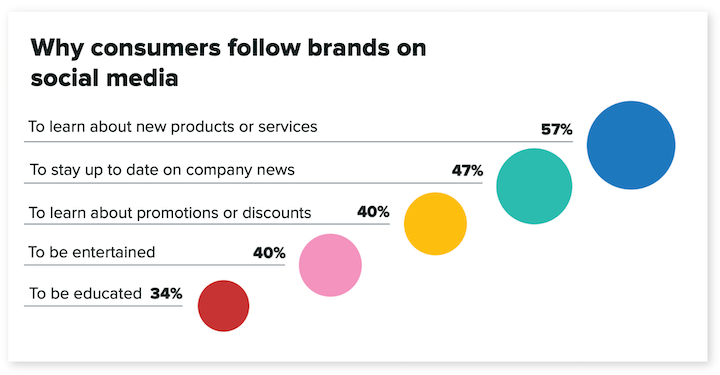
Source: https://www.wordstream.com/blog/ws/2022/05/11/target-audience
Enhancing Customer Experiences for Modern Insurance Companies
To stay competitive in today’s digital age, insurance companies need to focus on enhancing customer experiences. This involves providing exceptional service, embracing digital transformation, and leveraging technology to meet the evolving needs and expectations of customers.
Implementing Customer Relationship Management (CRM) Strategies
Implementing Customer Relationship Management (CRM) strategies is crucial for modern insurance companies looking to secure and retain loyal customers. CRM software plays a vital role in this process by enabling agents to store valuable customer information, recognize sales opportunities, handle customer service issues, and effectively manage marketing campaigns.
By utilizing CRM software, insurance agents can gather and store comprehensive customer data, including personal details, policy information, and communication preferences. This data allows agents to better understand their customers’ needs, preferences, and potential cross-selling or upselling opportunities.
CRM software also facilitates efficient handling of customer service issues. Agents can easily track customer interactions, monitor policy changes, and provide timely assistance when needed. By resolving issues promptly and effectively, insurance agents can enhance customer satisfaction and loyalty.
Furthermore, CRM software enables insurance agents to streamline their marketing efforts by segmenting customers based on their demographics, needs, and preferences. With these insights, agents can target their marketing campaigns effectively and nurture customer relationships through personalized communication.
Popular CRM platforms for insurance agents include Better Agency, Vertafore, and ZyWave. These platforms offer comprehensive features and functionalities tailored specifically to the insurance industry, empowering agents with the tools needed to implement successful CRM strategies and drive growth.
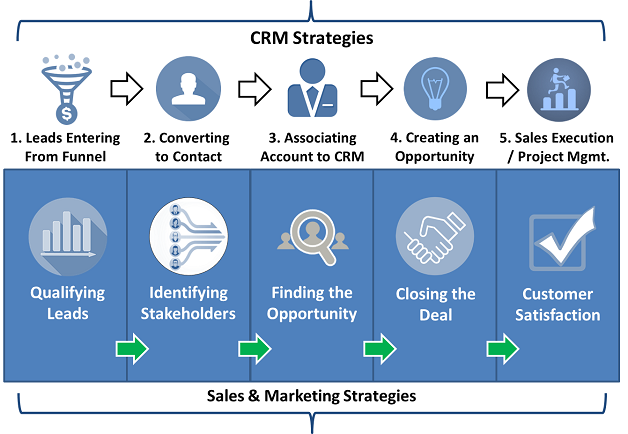
Source: https://www.revcarto.com/blog/why-customer-relationship-management-is-important-for-your-business
Utilizing Wide Variety of Additional Services to Increase Loyalty and Satisfaction
Modern insurance companies have a wide variety of additional services that they can offer to increase customer loyalty and satisfaction. These additional services go beyond traditional insurance coverage and provide added value to customers. Here are some tactics that insurance companies can use to achieve this:
- Savings Opportunities: Providing ways for customers to save money can be a powerful loyalty driver. This can include offering discounts for bundling multiple policies together, providing referral rewards, or implementing safe driving programs that lower premiums based on driving behavior.
- Customer Engagement Emails: Regularly communicating with customers through email newsletters or personalized messages helps keep them engaged and informed. These emails can provide helpful tips and updates on new products or coverage options.
- Offering Additional Products: Insurance companies can expand their product portfolio to include more than just basic coverage. This could include offering add-on products like identity theft protection, pet insurance, or cybersecurity coverage to meet the evolving needs of customers.
- Multipolicy Discounts: By encouraging customers to purchase multiple policies, such as auto and home insurance, insurance companies can provide them with cost savings and simplify their insurance needs.
- Safety Suggestions: Insurance companies can provide valuable safety suggestions to customers to protect their property and loved ones. This can include tips on home security, fire prevention, or disaster preparedness.
By utilizing a wide variety of additional services, insurance companies can increase customer loyalty and satisfaction. These tactics not only provide added value to customers but also strengthen the overall customer relationship and help insurance companies differentiate themselves in a competitive marketplace.
Making Use Of Digital Transformation To Enhance The User Experience
In today’s digital age, insurance companies must embrace digital transformation to enhance the user experience and stay ahead of the competition. By integrating technology into their operations, insurance companies can streamline processes and provide a more seamless and convenient experience for their customers.
One key aspect of digital transformation is the utilization of advanced analytics tools. By harnessing the power of data, insurance companies can gain valuable insights into client behavior and claims trends. This allows them to better understand their customers’ needs and preferences, enabling them to tailor their products and services accordingly. By utilizing advanced analytics, insurers can make more informed decisions and provide personalized experiences for their clients.
Furthermore, technology-driven features can greatly improve customer engagement. For example, online policy access allows customers to easily view and manage their policies anytime, anywhere. Chatbots provide instant support and assistance, addressing customer queries and concerns promptly. Plug-and-play applications enable customers to easily submit claims or request changes to their policies. These features not only enhance the user experience but also provide convenience and efficiency for both the insurance company and the customer.
Building Profitable Growth Modern Insurance Companies
In the rapidly evolving insurance industry, building profitable growth is a key challenge for modern insurance companies. To achieve sustainable success, insurance companies need to adopt effective growth strategies that align with changing market conditions and customer expectations.
Analyzing Market Conditions and Shares
Analyzing market conditions and shares is of utmost importance for modern insurance companies. It allows them to stay ahead of the competition and develop effective growth strategies.
The insurance industry is constantly evolving, with different customer segments and industry leaders vying for market share. Understanding these market conditions is crucial for insurance companies to identify potential opportunities and challenges.
Customer segments in the insurance industry range from individual policyholders to commercial customers. By analyzing market conditions, insurance companies can tailor their products and services to meet the specific needs of these segments, thereby attracting potential customers and retaining loyal ones.
Additionally, market conditions provide insights into the competitive landscape and industry leaders. Insurance companies can leverage this information to understand their relative position in the market and identify areas for improvement. This understanding enables them to adapt their business models and develop strategies that drive profitable growth.
Analyzing market conditions and shares also helps insurance companies identify trends and emerging customer needs. This allows them to develop innovative insurance offerings and provide exceptional service to their target audience.
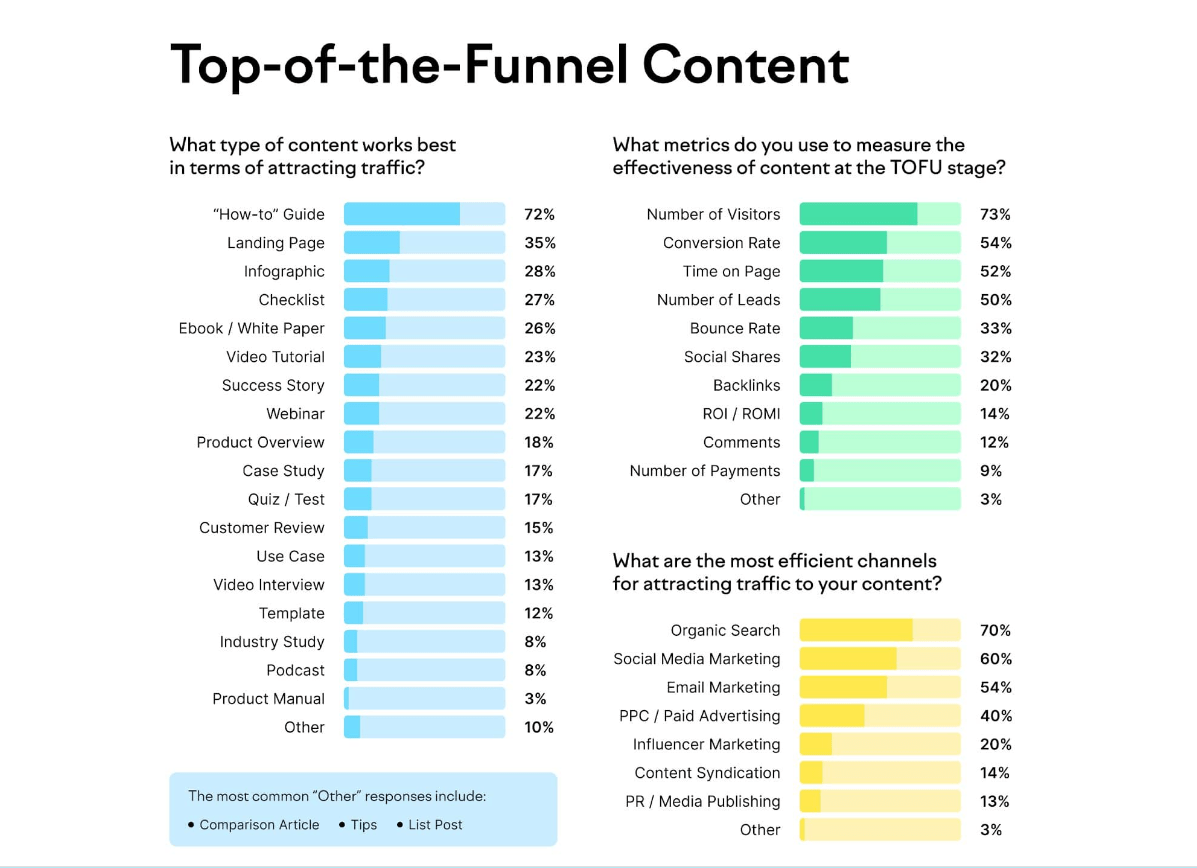
Source: https://www.revcarto.com/blog/why-customer-relationship-management-is-important-for-your-business
Develop Ideas For Insurance Marketing Strategies
Developing effective insurance marketing strategies is crucial for insurance companies seeking to attract potential customers and drive business growth. One key aspect of these strategies is identifying the target audience and tailoring marketing efforts to appeal to their specific needs and preferences.
Digital marketing plays a significant role in reaching the target audience effectively. By utilizing various digital tools and platforms, insurance companies can optimize their online presence and engage with potential customers. This includes leveraging search engine optimization (SEO) techniques to improve their visibility in online search results, employing social media marketing to connect with a broader audience, and utilizing email marketing to nurture leads.
Creating valuable content is another effective strategy. By providing informative and educational content related to insurance, companies can establish themselves as trusted experts and build credibility with potential customers. This can be done through blog posts, videos, e-books, and other content formats.
Collaborating with partners and building a strong referral network is also crucial. Establishing relationships with other businesses that serve the same target audience can lead to valuable referrals and mutual growth. This can be done through partnerships, sponsorships, or affiliate programs.
Exploring the Role of SEO Agencies in Digital Success
Are you an insurance company looking to optimize your digital strategies and reach a targeted audience? Partnering with a top SEO agency could be the key to driving brand awareness and achieving your growth goals.
By collaborating with a reputable SEO agency, insurance companies can leverage their expertise in local SEO tactics, social media ads, and content marketing. These experts understand the specific needs and challenges of the insurance industry, and can tailor their strategies to maximize your online presence.
Furthermore, a top SEO agency can assist with content marketing, creating valuable and informative content that resonates with your target audience. This content not only establishes your company as a trusted expert in the insurance industry but also helps drive organic traffic to your website.

Baris Coskun
Baris Coskun is 8 years experienced SEO Expert that specializes in content and technical SEO strategy creation/implementation progress for large-scale, multilingual, and international targeting websites.

